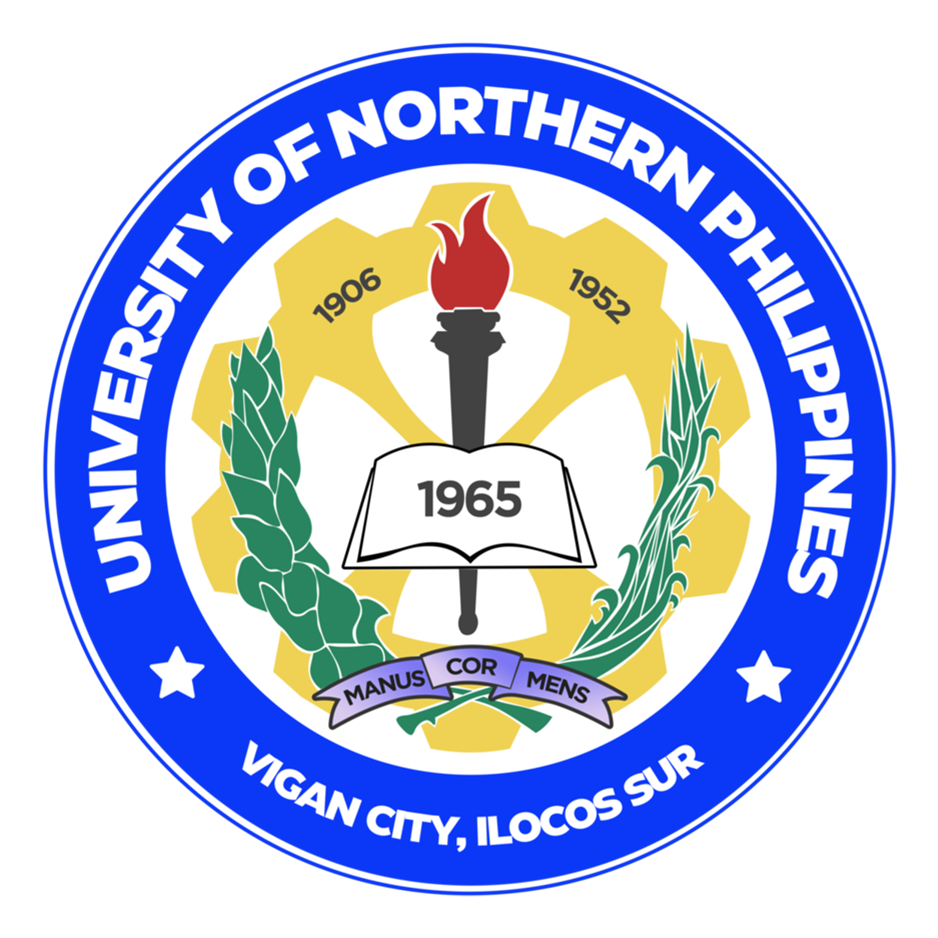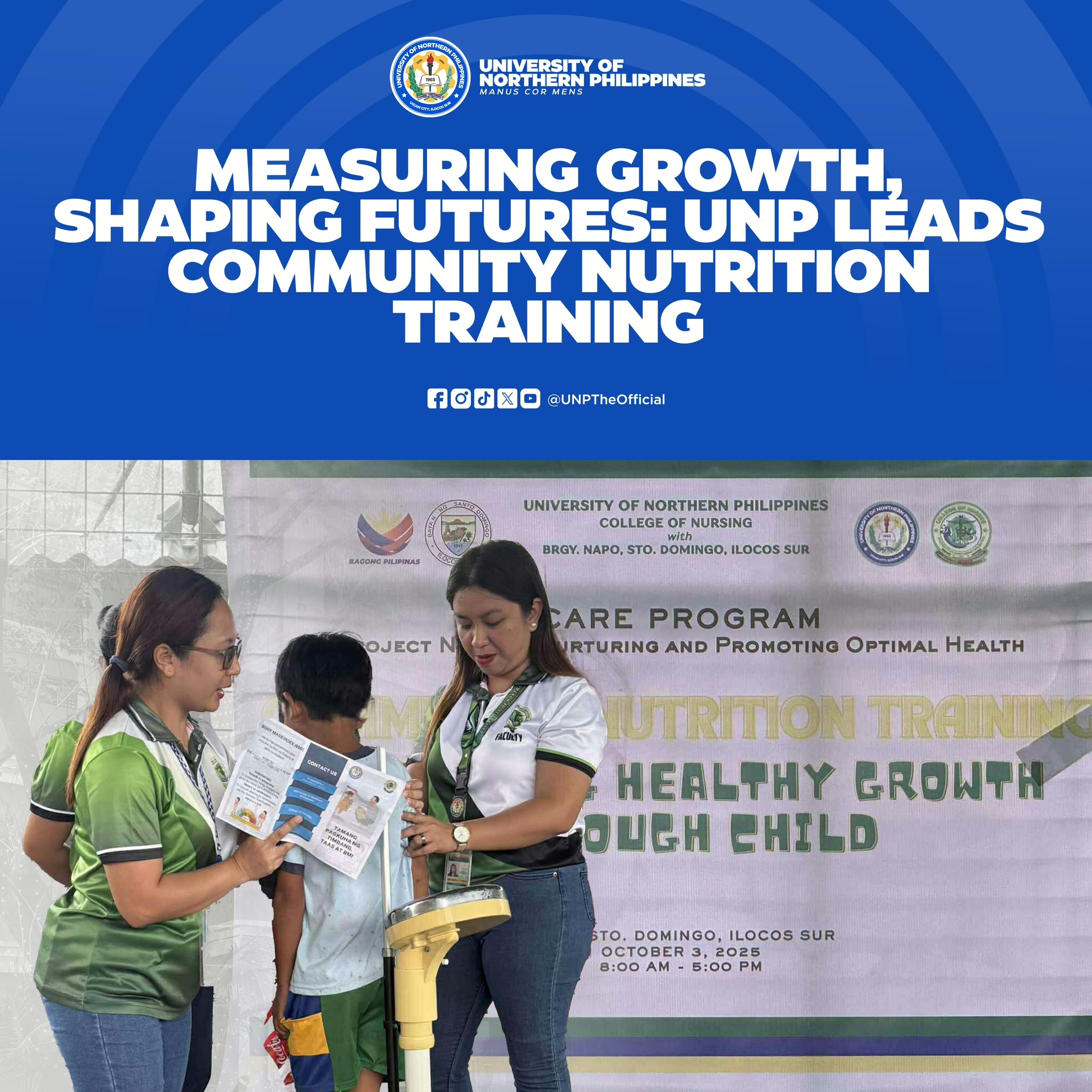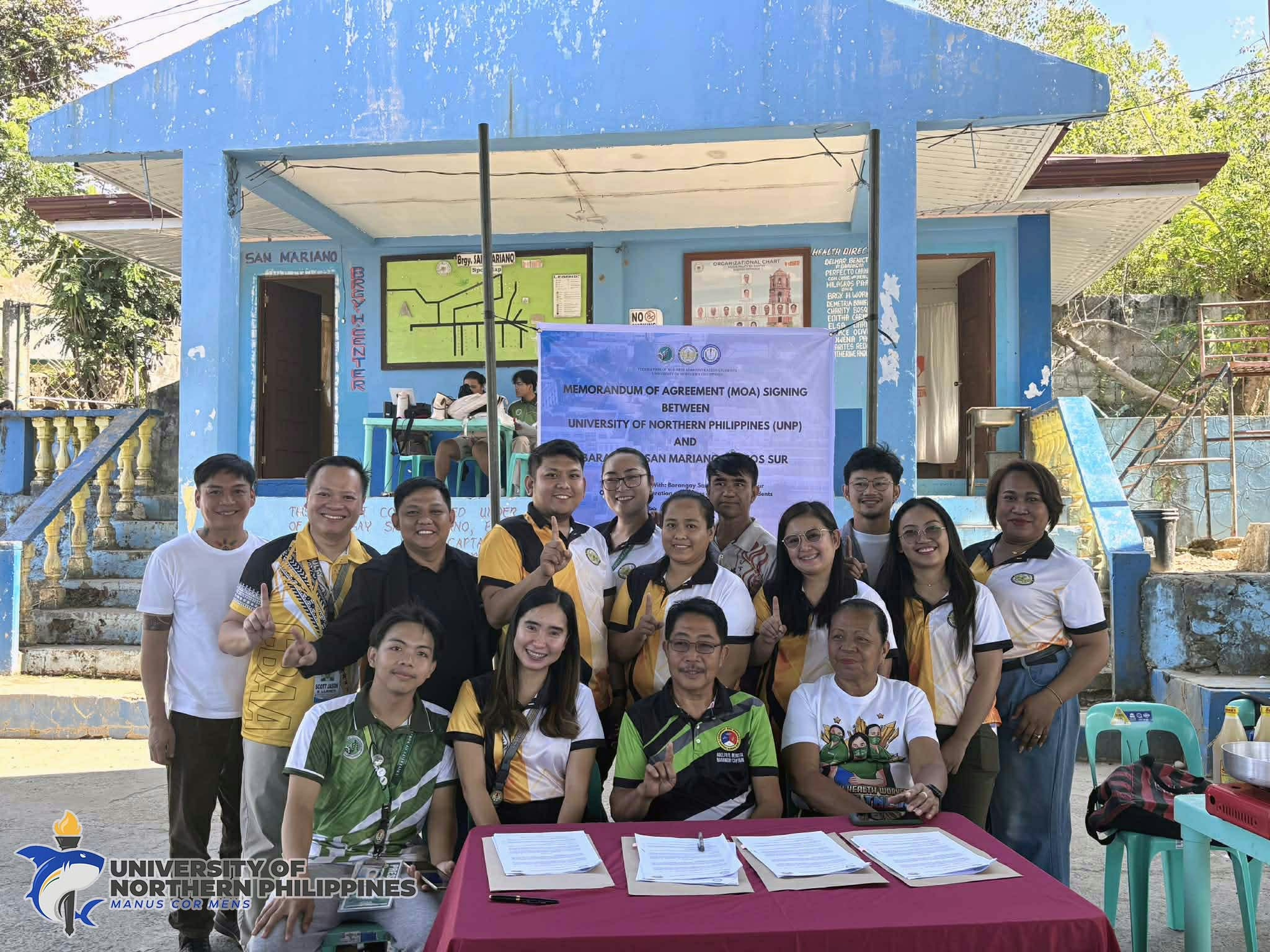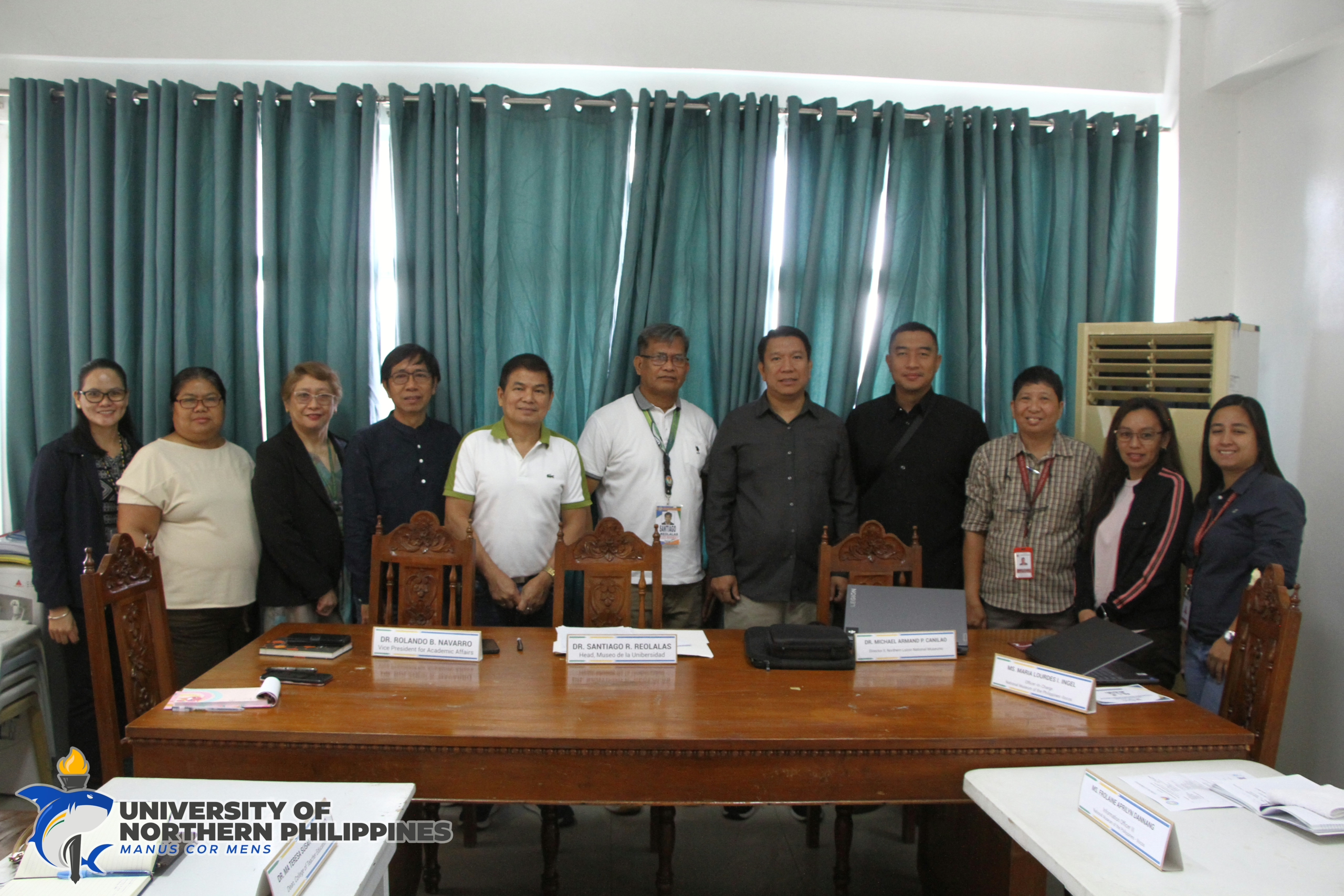The College of Nursing of the University of Northern Philippines (UNP) led a Nutrition Training Program on October 3, 2025, in Barangay Napo, Sto. Domingo, Ilocos Sur, bringing together barangay health workers, local officials, and community residents. The initiative sought to enhance participants’ knowledge and skills in promoting child health, while underscoring the vital role of cultural traditions in shaping nutrition and caregiving practices.
By acknowledging how local customs influence family health behaviors, the training highlighted the importance of blending scientific principles with cultural sensitivity to achieve more effective and sustainable approaches to child health promotion.
The training consisted of three interactive sessions facilitated by expert resource speakers. Prof. Claudine Almachar opened the program with a discussion on “Nutrition and Healthy Feeding Practices among Children,” emphasizing the importance of balanced diets and culturally responsive approaches to child nutrition. This was followed by Prof. Lady Jane Malagum’s session on “Child Growth Monitoring and Growth Standards,” where participants gained hands-on experience in using growth charts to identify early indicators of malnutrition. Concluding the series, Prof. Winda Brigado conducted a practical lecture on accurate height and weight measurement with computation, equipping attendees with essential skills for precise and reliable growth assessment.
Participants engaged actively in discussions that connected clinical knowledge with community practices, making the training relevant to both professional nursing practice and family care. The initiative concluded with participants expressing readiness to apply their learnings in clinical and community settings.
This training also forms part of Project NAPOh (Nurturing and Promoting Optimal Health), a broader program aligned with Sustainable Development Goal (SDG) 3: Good Health and Well-being. By valuing cultural diversity while advancing scientific knowledge, the program envisions a future where children grow up healthy, resilient, and deeply rooted in their cultural heritage.
Rizza Abinsay




